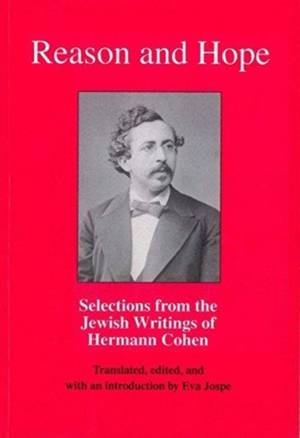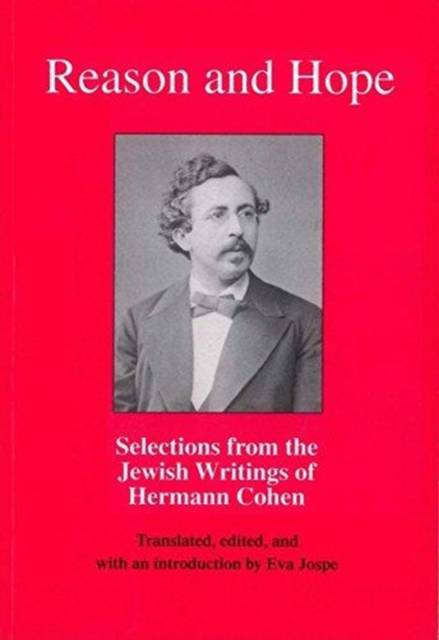
Bedankt voor het vertrouwen het afgelopen jaar! Om jou te bedanken bieden we GRATIS verzending (in België) aan op alles gedurende de hele maand januari.
- Afhalen na 1 uur in een winkel met voorraad
- In januari gratis thuislevering in België
- Ruim aanbod met 7 miljoen producten
Bedankt voor het vertrouwen het afgelopen jaar! Om jou te bedanken bieden we GRATIS verzending (in België) aan op alles gedurende de hele maand januari.
- Afhalen na 1 uur in een winkel met voorraad
- In januari gratis thuislevering in België
- Ruim aanbod met 7 miljoen producten
Zoeken
€ 38,45
+ 76 punten
Omschrijving
The 19th century neo-Kantian philosopher Hermann Cohen has provided significant underpinnings for understanding Judaism as a religion with a rational and universal character, as a religion of hope for the future. The eight essays selected for Reason and Hope lay out Cohen's exposition of God as the Uniquely One and explore the universal implications of this idea. The essays are arranged to show how Cohen's philosophy on monotheism, prophetism, and messianism holds the idea of Israel's chosenness in tension with its universalism and its goal of creating a community of ethical individuals bearing witness to the unique Oneness of God. Eva Jospe makes Cohen's thought accessible to readers in English through her translations, notes, and introduction. Her introduction introduces the life of Hermann Cohen, explains key themes and concepts in his work-faith and reason, the "is" and the "ought," creation and revelation-and summarizes how they relate to the ethical and rational Judaism Cohen espouses. The essays are self-contained, but Jospe traces Cohen's thought through them in her notes, which identify his roots in Plato and Kant and explore how his ideas interact with those of other Jewish thinkers like Maimoinides and Buber. Her editorial remarks are careful to retain the essence and context of Cohen's arguments while pointing to the relevance of his thought to contemporary Jewish theology and education. This reprint edition comes more than twenty years after the book's first publication and remains a valued resource for introducing scholars, students, and lay readers alike to the work of this important Jewish thinker.
Specificaties
Betrokkenen
- Auteur(s):
- Uitgeverij:
Inhoud
- Aantal bladzijden:
- 240
- Taal:
- Engels
Eigenschappen
- Productcode (EAN):
- 9780878202119
- Verschijningsdatum:
- 1/05/1997
- Uitvoering:
- Paperback
- Formaat:
- Trade paperback (VS)
- Afmetingen:
- 150 mm x 218 mm
- Gewicht:
- 258 g

Alleen bij Standaard Boekhandel
+ 76 punten op je klantenkaart van Standaard Boekhandel
Beoordelingen
We publiceren alleen reviews die voldoen aan de voorwaarden voor reviews. Bekijk onze voorwaarden voor reviews.









